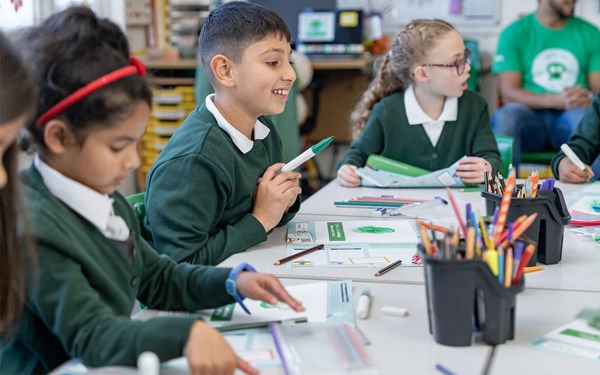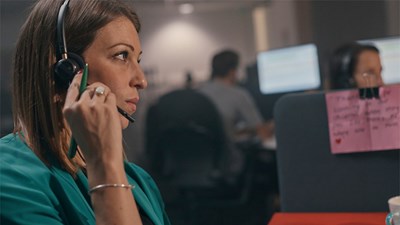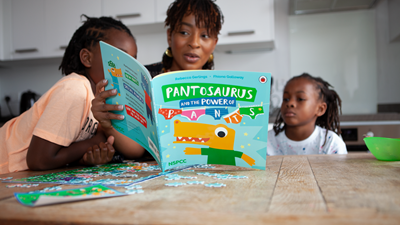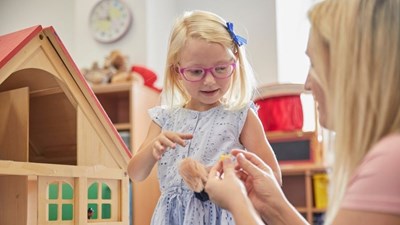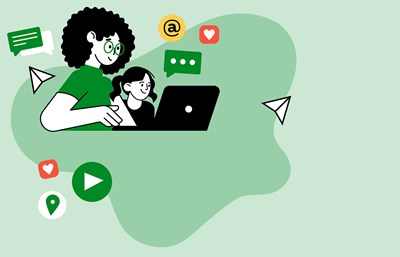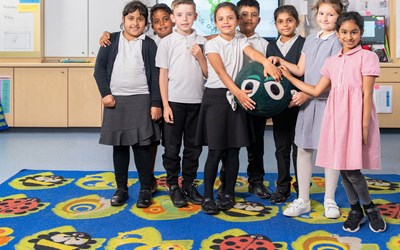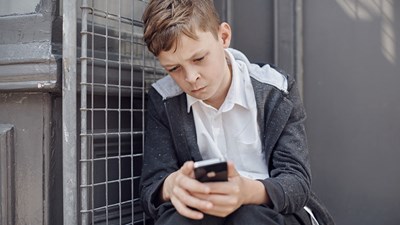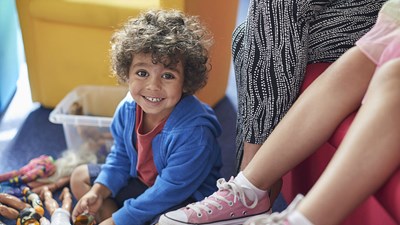The difference we made in 2022-23
We have a 10-year strategy to stop child abuse and neglect, supported by 3 impact goals. The 2022/23 financial year was the second year of that strategy, and we made good progress within each of those goals.
Impact goal 1: everyone plays their part to prevent child abuse
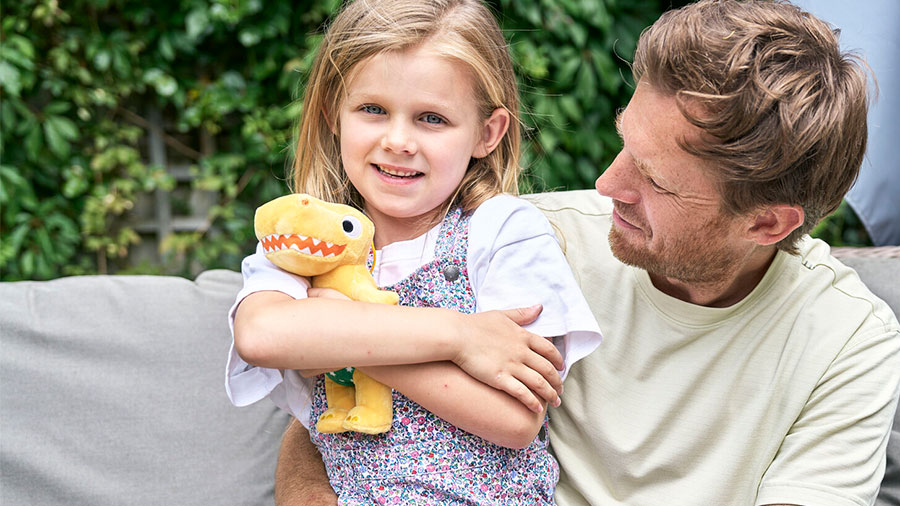
We’ll make it easier for everyone to play their part and create a social safety net that prevents child abuse and neglect.
These are just some of our achievements in 2022/23:
NSPCC Helpline
The NSPCC Helpline provides adults with advice, guidance and support and can take action on their behalf if they have concerns about a child who is either being abused or who is at risk of abuse.
Our helpline responded to more than 59,000 contacts last year. And 30% of those calls resulted in a referral or referral update.
Talk PANTS
More than 1.4 million parents had a conversation with their child, thanks to our Talk PANTS resources, which are available in multiple languages and in MAKATON.
Community events
We work with partners in local communities to deliver events tailored to the local area’s safeguarding needs.
There were over 61,000 attendances by children, parents, members of the public and adults who work or volunteer with children this year. Those were to events for our Look Say Sing Play campaign and around online safety and healthy relationships.
Policy and influencing
We use our influence so that laws and systems have children’s needs rooted into them and so that best practice is adopted to better protect children. We influenced 12 policy and practice changes during the year across the four nations.
Impact goal 2: every child is safe online
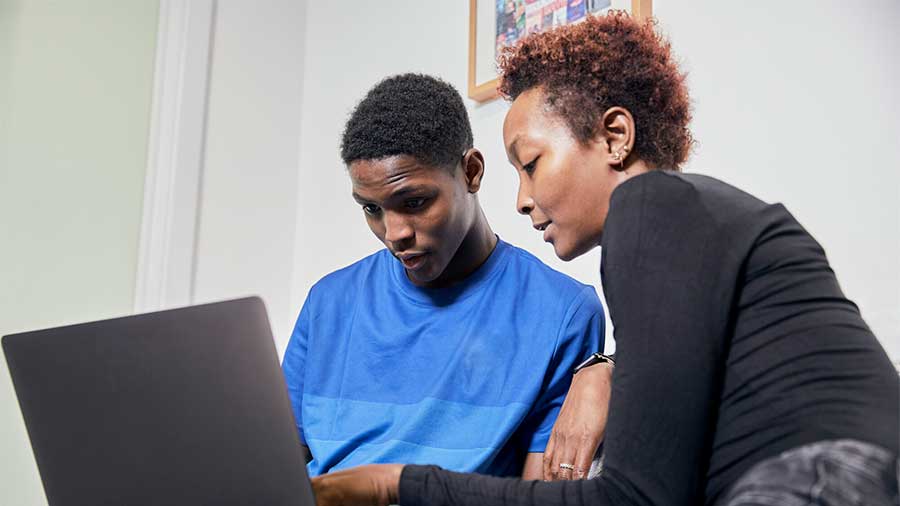
Together, we can transform the online world, so it’s safe for every child to go online.
These are just some of our achievements in 2022/23:
Online Safety Bill
We continued to campaign for an Online Safety Bill which meets the NSPCC’s priority areas, including the creation of a user advocacy body for children and senior manager liability.
Our Young People’s Board for Change members handed in two letters they’d written to the Department for Digital, Culture, Media and Sport. Those letters, one written by the board and another signed by almost 40,000 NSPCC supporters, called for an Online Safety Bill which listens to young people’s experiences of being online.
Report Remove tool
There were 283 reports made through the Report Remove tool, which in partnership with the Internet Watch Foundation enables young people to request removal of sexual images or videos of themselves online.
Campaigns and partnerships
In February 2023 we launched a new online wellbeing campaign, Positively Online, supported by Jo Malone London. The campaign aimed to get parents talking to their children about online wellbeing and feeling more positive about using the internet.
The landing page had more than 21,000 visits and the quiz was visited more than 6,000 times.
We also joined forces with Vodafone, contributing our online safety expertise to an online resource for parents. The page was viewed 65,000 times in the first two weeks.
"Far too much pressure is put on young people from such a young age to keep themselves safe online. Too many children are exposed to content promoting self-harm and eating disorders. It's become a norm in our everyday lives. We need a Bill that is going to hold big tech firms accountable. Without it, young people are on their own. We've been on our own for so long online – and it’s not working."
Rachel, 15 / Young People's Board for Change
Impact goal 3: children feel safe, listened to and supported
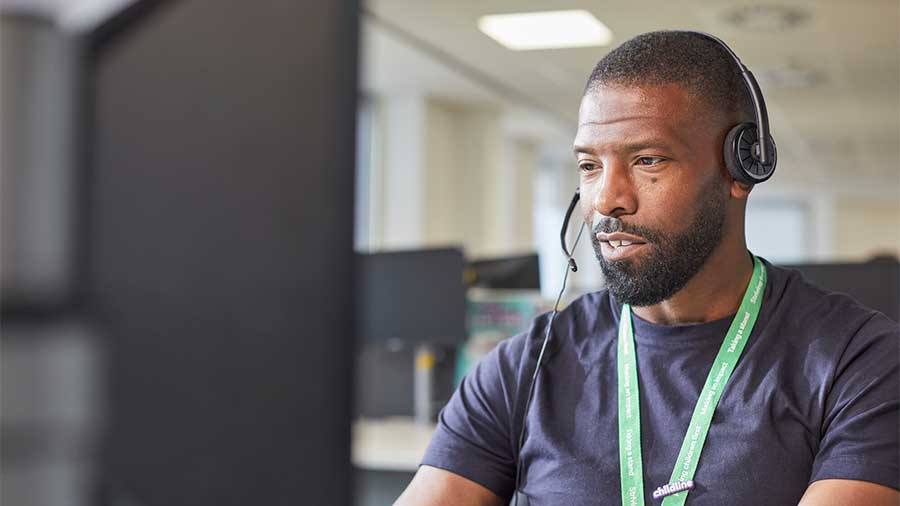
We want more children to be able to speak out, so they feel safe, listened to and understood.
These are just some of our achievements in 2022/23:
Speak out, Stay safe
This school programme helps children learn what abuse is, know that they have the right to be safe, and what to do if they’re ever worried or scared.
This year we reached more than 1.2 million children in more than 5,000 schools.
Talk Relationships
We launched the first phase of our Talk Relationships programme, which supports educators to increase their knowledge, skills and confidence in delivering sex and relationships education.
Our e-learning course was completed more than 2,000 times and 95% of those who completed the course said the training made a positive difference to their professional practice.
Childline
Childline helps anyone under the age of 19 with any issue they’re going through and we know that it helps children feel less alone with their problems.
We provided almost 200,000 counselling sessions through Childline, our 24-hour 365-days-a-year service. Those sessions were delivered by almost 1,100 volunteers.
Therapeutic services
Our therapeutic services help children who’ve been abused, protect children at risk and find the best ways to prevent child abuse from ever happening.
We worked directly with 1,800 children and families last year. By partnering with local organisations, we’ve been able to extend the reach of our evidence-based services to more than half the local authorities in the UK.
"Thank you so much for all the help and advice you gave me last year. The issues with my family are still a work in progress – however, there’s definitely been improvement and I feel so much more positive about things. Thank you again from the bottom of my heart! Hopefully, things just get better from here."
Girl, 18*
"It’s crucial that everyone plays their part to prevent child abuse. What you’ve read on this page is a reflection of the fantastic contribution made by our supporters, partners, volunteers and staff. Thank you for your support and the part you play in building a better world for children. Together we can stop child abuse and neglect."
Peter Wanless, CEO of NSPCC
Even more ways we've made a difference
Read our Annual Report to discover more about the impact we’ve made in the past financial year, as well as more on our:
- fundraising activities
- volunteering achievements
- organisational initiatives
- annual accounts.
How we'll continue to make a difference
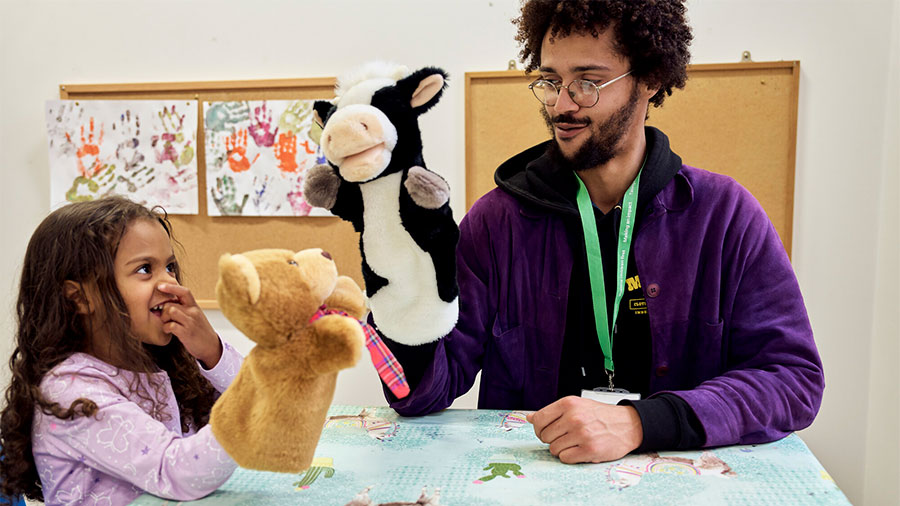
Together, we can stop child abuse and neglect. Through the collective power of our staff, volunteers, supporters and partners, and our 100 years of experience; we will move closer to achieving that goal.
Our three impact goals will help us do that. Each of our goals contributes something different. On their own they will see us making significant and necessary changes for children. Together, they will build on each other and have a huge impact on children’s lives.
Now you’ve read about our impact in 2022/23, will you help us be here for more children? Donate today, and together, we can stop child abuse and neglect.
You might also be interested in
*Disclaimer: The quote is based on real Childline service users but is not necessarily a direct quote. Potentially identifying details have been changed to protect the identity of the child or young person involved.


